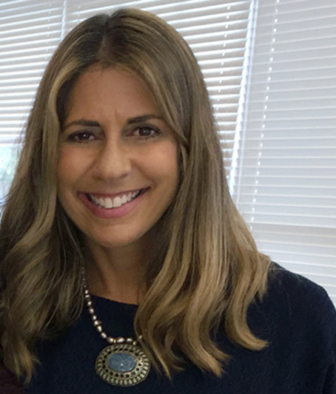
DGLimages/Shutterstock
.
Most research shows that obtaining a college degree will lead to higher lifetime earnings than possessing only a high school diploma. However, many young people who have been in the foster care system often feel as though reaching this education level is unattainable. Research also shows that when compared with their peers in the general population, youth in foster care are at the greatest danger of failing to get a college education.
These outcomes are disheartening since it is well-known that obtaining an undergraduate degree is one of the best indicators of future financial success in life and independent living in adulthood.

Sonja Lenz-Rashid
For decades, researchers have documented the lack of educational attainment among foster care youth including low high school graduation rates, college enrollment rates, college persistence rates and college graduation rates, when compared to the general population of students and even low-income students. Foster care youth are simply a uniquely vulnerable population, even when compared with other low-income college students.
Researchers have only recently begun to explore why so few former foster youth who attend college graduate with a degree. Foster youth often face a plethora of barriers to achieving a college degree: lack of financial support, history of trauma, academic challenges, lack of preparation, school changes, higher rates of learning needs and a culture of low expectations.
Little Research on CSP
Consequently, in the last 15 years colleges and universities have started to focus on providing extra supportive services to assist youth from foster care while they are enrolled. These campus support programs (CSP) can vary considerably in terms of services such as academic support, case management services, year-round housing opportunities, priority registration, textbook support, career planning services, scholarship opportunities, etc. Unfortunately, very little is known about the outcomes of foster youth served in CSPs across the country.
Although there are a number of support programs at community colleges and four-year universities throughout California, Washington, Michigan and other states, there has been little research examining the long-term outcomes of the college graduates from such programs. “In response to greater awareness about the unique needs and potential difficulties of foster care alumni in postsecondary educational settings, programs have emerged in the United States (U.S.) to better recruit and retain foster care alumni on college campuses,” this analysis says.
These campus support programs (CSPs) are specifically developed to fit the needs of undergraduate students who were formerly in foster care to ensure they have high retention and graduation rates, as well as positive experiences while in college. Although each program is unique, they can vastly vary in terms of financial, academic, social/emotional, case management and housing support to help foster youth stay in school and graduate. There are currently hundreds of programs across the country, but little research has been done on the academic outcomes of students in the programs.
CSPs are either funded internally (with either university general fund staffing positions or campus cost-sharing) or externally through soft money such as private foundation individual donor contributions. There are a variety of models of service; some campuses offer services for all students who are current or former foster youth who are eligible, but most have a limited amount of spots available and therefore have an application screening process.
Many services at San Francisco State
San Francisco State University’s Guardian Scholars Program (GSP), the first comprehensive program in Northern California, has the capacity to serve approximately 100 students annually. The program has a program director, a coordinator, three case managers, a career pathways specialist, a program assistant, an academic advisor and a grant writer. A campus professor also acts as a part-time clinical supervisor to the program. Lastly, the program has two part-time mental health therapists who are independent contractors with the program.
The budget for the program is currently $1 million per year with the university cost-sharing about $150,000 of the total budget. Financially the program is operated under the campus nonprofit, University Enterprises, with all funds being raised and distributed through this 501(c)3.
All San Francisco State GSP students receive individualized, intensive case management by a master’s-level social worker to help them negotiate the campus and overcome any barriers or obstacles they may face as students. The goal of the clinical case management component is to empower all Guardian Scholars students to help them create changes for themselves, as well as set and achieve educational, career and personal goals. Students meet with the GSP case manager two to three times per month each semester. Crisis intervention and brief counseling is also provided by the case management staff. In order to remain in GSP, students must attend at least four case management meetings per semester.
The students enter the GSP program as a cohort (first-time freshmen and transfer students in the fall of each academic year), so they get to know their cohort really well. Year-round on-campus housing is also provided to all GSP students. San Francisco State University was one of the first universities in the nation to provide year-round housing in its dorms, which began in 2005. Since many young people from foster care do not have contact with families of origin after leaving care, those in college may not have anywhere to live during winter, spring and summer breaks from school when the campus is closed (and federal financial aid does not cover the school breaks).
GSP students also receive priority housing in the Housing and Residential Services Department, which is significant given the lack of affordable housing options in and around the campus. San Francisco State was also one of the first universities in the nation to prioritize student housing for foster youth. Most Guardian Scholars incoming freshmen live together in a campus residential building, in the same apartments. These units are furnished apartments where students can cook their own meals when the dining halls are closed over the school breaks. Bedrooms in the apartments are double occupancy, like in a traditional college dorm room.
Social support, therapy offered
Given the high rates of mental health challenges and past experiences of complex trauma among former foster youth in college, GSP students at San Francisco State have the option to see an off-campus therapist who only works with GSP students. The therapists, independent contractors who are paid for by an external foundation grant, come to campus to meet with students. The GSP students seek therapy for a variety of reasons; past trauma, interpersonal problems involving relations with others, emotional or social difficulties, relationship conflicts, anxiety or depression, sexuality and orientation, concerns about academic progress or direction, and/or other issues.
The GSP program also offers a variety of social activities throughout the year to help develop a peer community and social support network, as well as leadership building, for all Guardian Scholars on campus. The program facilitates a variety of groups for students related to career planning, support and the arts. The social support services help the students develop a sense of group consciousness, community empowerment and leadership skills. Additionally, the goal for these activities is to help GSP students begin to develop permanent emotional connections to each other. The program also offers support for textbooks; stipends for off-campus housing, food on campus and school supplies, and priority registration. The child care center on campus has priority slots for parenting GSP students.
The San Francisco State GSP examined all 194 GSP students ages 17 to 30 who received services from the program between 2005 and 2017. The program saw an 84% sophomore year retention rate, an 82% overall retention rate and a 70% six-year graduation rate. These outcomes are better than the outcomes for the university’s general population of students, their Pell Grant recipients and nationwide public university students.
Although descriptive in nature, these outcomes offers early evidence that campus support programs may lead to improved academic outcomes for foster youth in undergraduate studies at four-year public universities. If these programs can offer foster youth comprehensive services such as year-round housing, priority registration, clinical case management, therapy, leadership opportunities and social support, then the academic outcomes for these college students may be vastly improved.
Sonja Lenz-Rashid, Ph.D., LCSW is an associate professor of social work at San Francisco State University and co-founder of the San Francisco State Guardian Scholars Program. She has also studied the outcomes of, and best practice models for, foster care youth at the national, state and Bay Area levels.



























